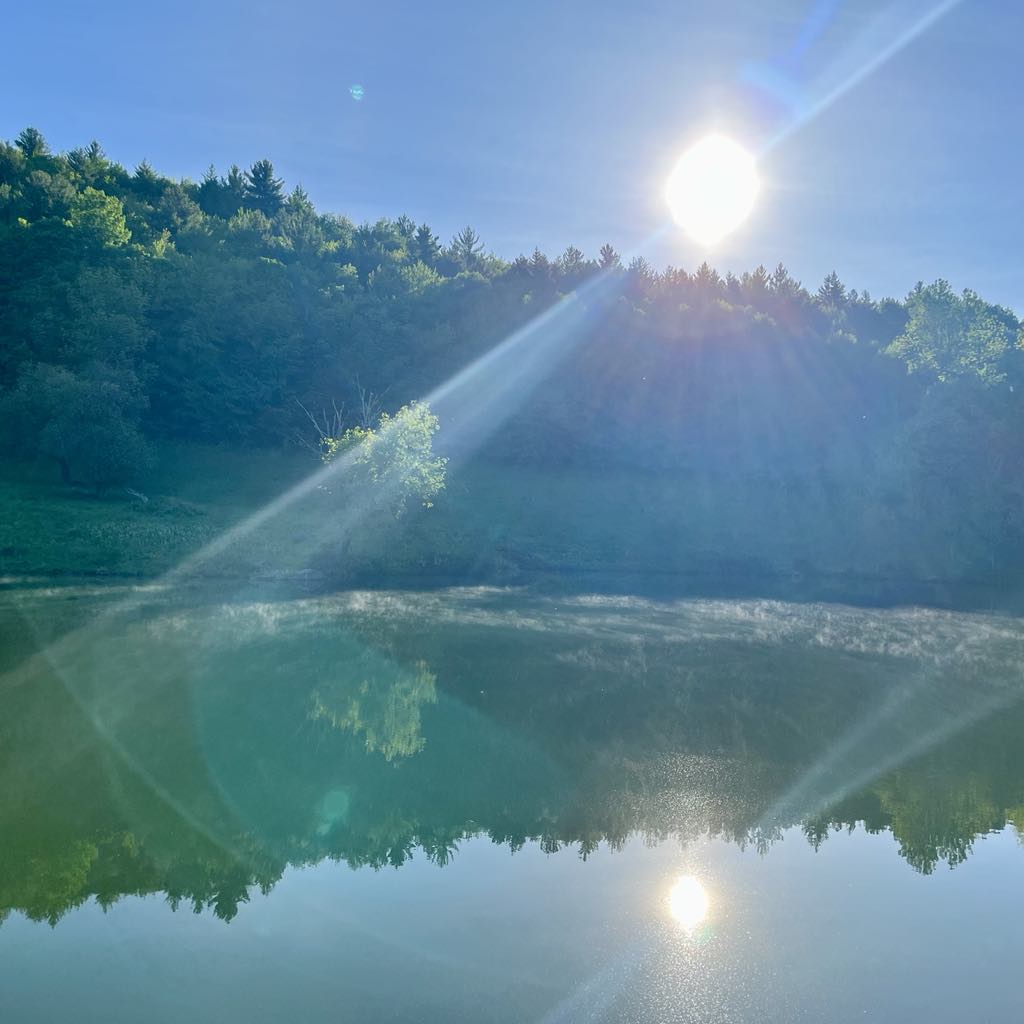
Let's talk about DIY sunscreen
Share
As someone who is in the business of making soaps, salves and deodorants, I sometimes get asked if I offer any sunscreen products. I've been on the all natural train for a while and am not afraid of a little chemistry, so many years ago, I did try my hand at homemade sunscreen.
Do DIY Sunscreen Recipes Work?
In short no, or at least not consistently enough to depend on them for real sun protection.
I tried many different sunscreen formulations, mostly recipes that featured zinc oxide as the main SPF-providing ingredient. There are many zinc oxide sunscreens produced commercially with great SPF ratings, so I figured it must be something I could make at home! Since I have very pale skin, I have the advantage of being an excellent test subject for sunscreen. But no matter how dedicated I was to consistent reapplication, these sunscreens never seemed to work for me. I was always getting burnt.
So I hit the internet again to find out what was going on. Why did commercial zinc oxide sunscreens work but mine didn't?
A Stick Blender Just isn't Going to Cut it
It turns out that an effective sunscreen is about more than just the ingredients. How the ingredients are mixed has a huge impact on how much sun protection the product can provide. Michelle Wong is a cosmetic chemist with a chemistry PhD who runs the website Labmuffin Beauty Science. Her article: Fact-check: Don't Get Burnt by DIY Sunscreen [1] gives a great explanation about how it just isn't possible to achieve reliable, consistent SPF protection with homemade formulations.
Commercial mineral sunscreens (zinc and/or titanium oxides) are mixed with specialized machinery that makes sure the minerals are evenly and smoothly mixed, down to a microscopic level (and no, we're not talking about nano minerals here). Without this specialized mixing, the minerals will clump in ways that may not be visible to the eye but result in inconsistent protection from the sun.
Another article by cosmetic chemist Amanda Foxon-Hill details her experiments with homemade sunscreen recipes [2]. To have a certified SPF rating, products must go through third party testing, which can be expensive. Foxon-Hill lab tested several of her formulations and each time the actual tested SPF was much lower than the recipe claimed and often inconsistent batch to batch, even with the same recipe.
After several years of recipe testing and investment in some specialized equipment, Foxon-Hill was able to create several different products with SPF ratings consistently around 15, which I think is a great accomplishment! However, I think it just further proves the point that this is not something you can easily achieve at home with a recipe you found online.
But I Make My Own Sunscreen and I Don't Get Burnt!
The problem with using "do I get sunburned?" as the marker of whether or not a sunscreen works, is that much of the sun damage we should be concerned about is not visible as a burn. The sun has two types of skin-damaging radiation that we should be concerned about, UVA and UVB rays. UVA rays cause burns, tanning and skin damage over time. [3]
UVB rays don't cause visible burns but exposure over time causes DNA damage in your skin that can result in melanoma and other skin cancers. And while paler skin tones will alert you to UVA over exposure by burning, you won't know that you've gotten too much UVB exposure until your first visit to a dermatologist for that funny looking mole...
So even if you've managed a homemade sunscreen that protects you from burns, without testing there's no way to know if it's effectively blocking UVB.
But I Don't Even Need Sunscreen Because I Don't Burn!
Let's be honest, most people are more gifted in the melanin production department than I am! If you have a darker skin tone or tan easily, you may be tempted to ditch sunscreen altogether. But skin damage still happens, even if you don't burn.
Darker skin is still subject to cancer risks, premature aging and hyper-pigmentation as a result of sun exposure, even if you never visibly burn [4]. While tanning is your skin's reaction to UVA damage and melanin provides some protection from UVA rays, it does nothing to stop UVB.
If you can't find an SPF tested natural sunscreen that you like, remember that the best "DIY" sunscreen is simply covering your skin. I spend a lot of time outside in all seasons and I am a big fan of hats, sunglasses, and long sleeves/long pants, even in the summer! Have you noticed that many cultures from areas of the world that have a lot of sun exposure also often have traditional clothing that covers as much skin as possible? The key is loose fabric with good airflow!
Where to Find Good Natural Sunscreens
There are a lot of good natural sunscreens out there that are SPF tested. A great logo to look for is "reef safe" sunscreens. These are free of various sunblock chemicals that can cause coral bleaching, including the nano versions of zinc and titanium oxide. (The non-nano versions of these minerals are safe for people and coral and work very well)
Sunscreens that come in metal tins or cardboard push-up tubes are great for reducing plastic waste, though this type of packaging can sometimes be hard to find.
Here's a great guide to finding a reef safe sunscreen.
Healthline has a round up of the best sunscreens for dark skin. (If you are looking for a natural option, look at the products labeled "mineral" rather than "chemical".)
The Environmental Working Group (EWG) also has a great sunscreen guide. This organization maintains an excellent database about the safety of consumer product ingredients.
References:
[1] https://labmuffin.com/fact-check-dont-get-burnt-diy-sunscreen/
[2] https://realizebeauty.wordpress.com/2012/12/30/the-trouble-with-making-your-own-sunscreen/

1 comment
As always, very informative. I like your articles because they are informative without being too long.